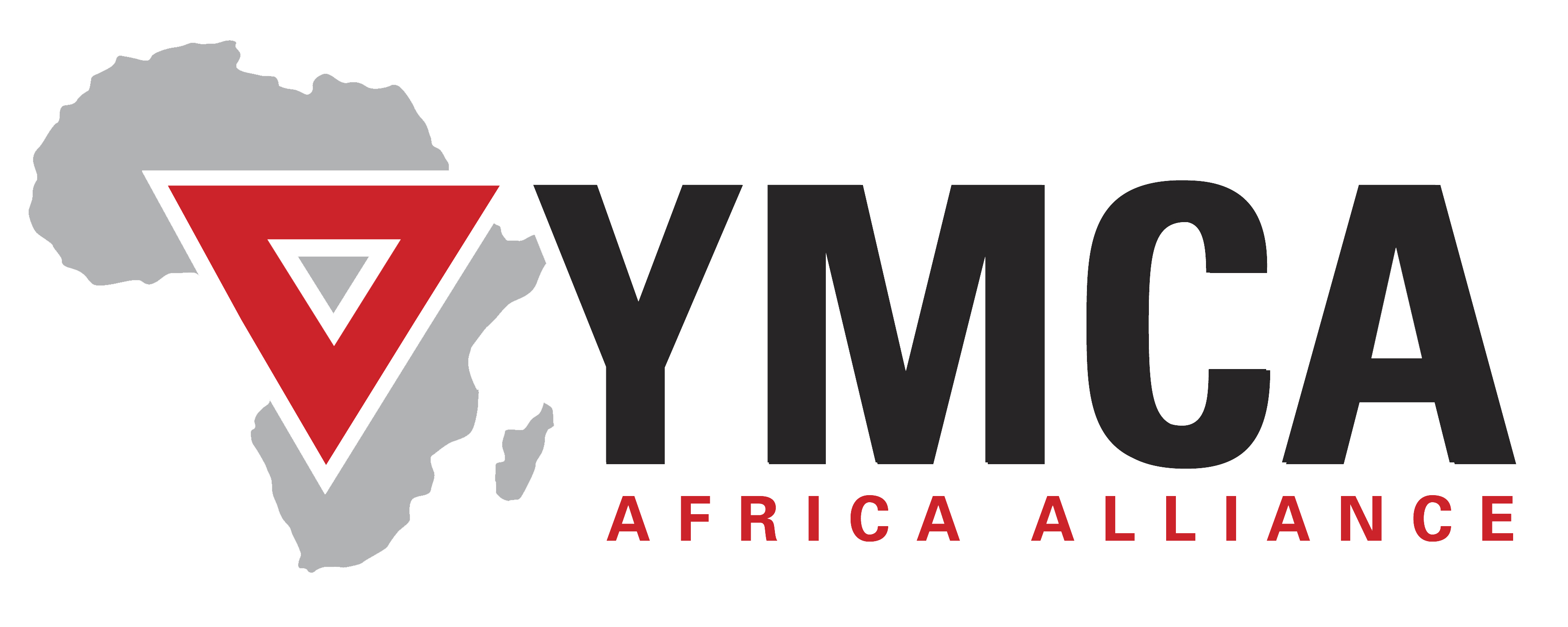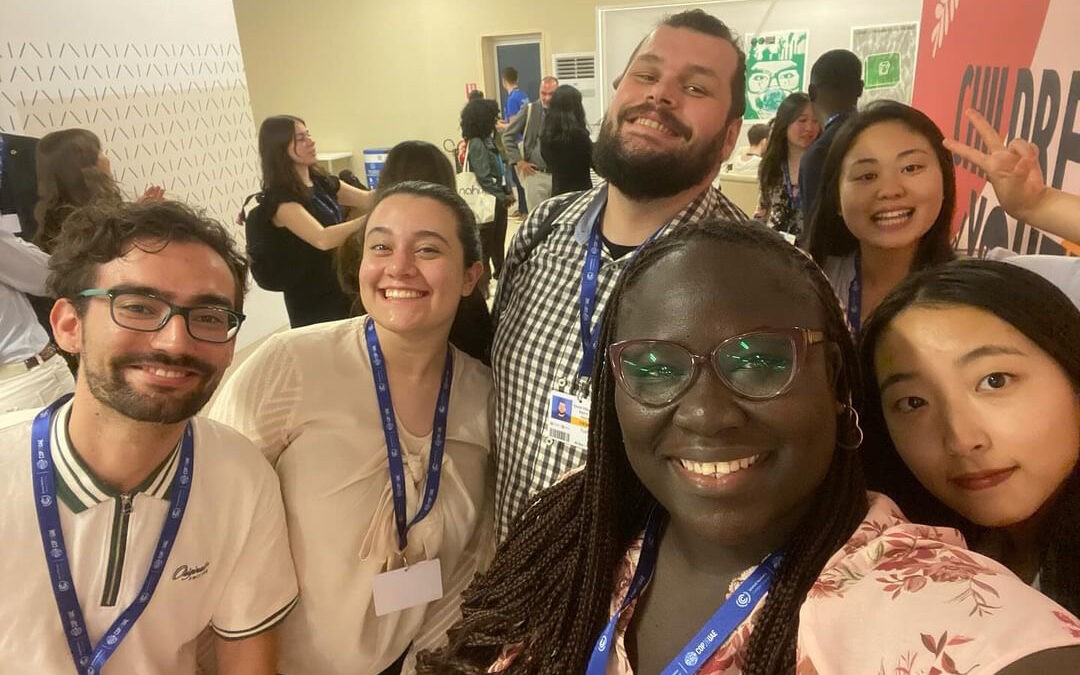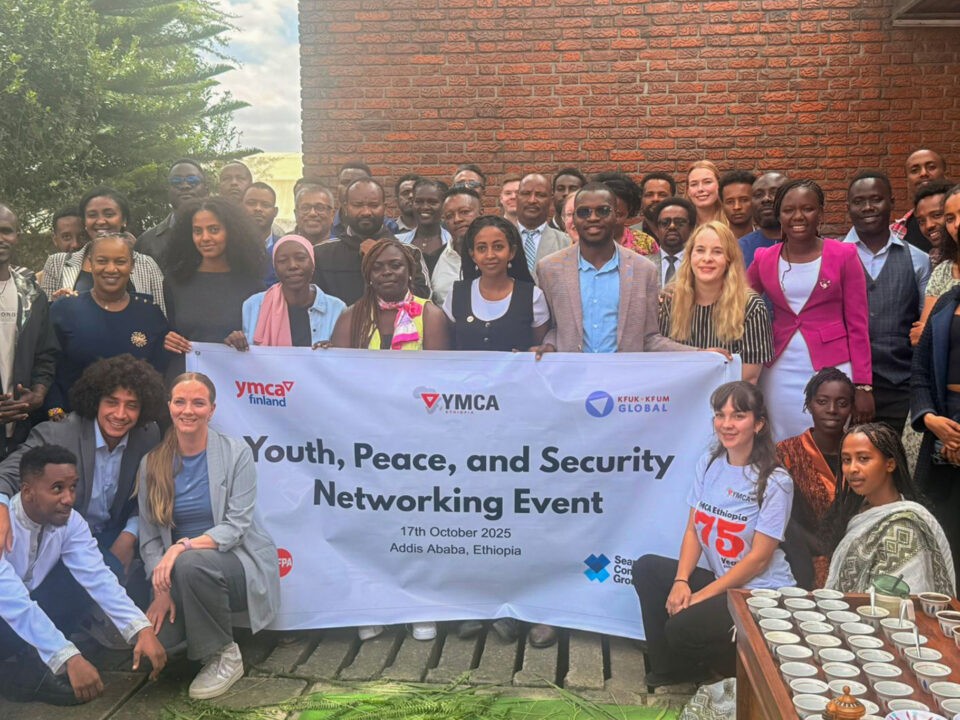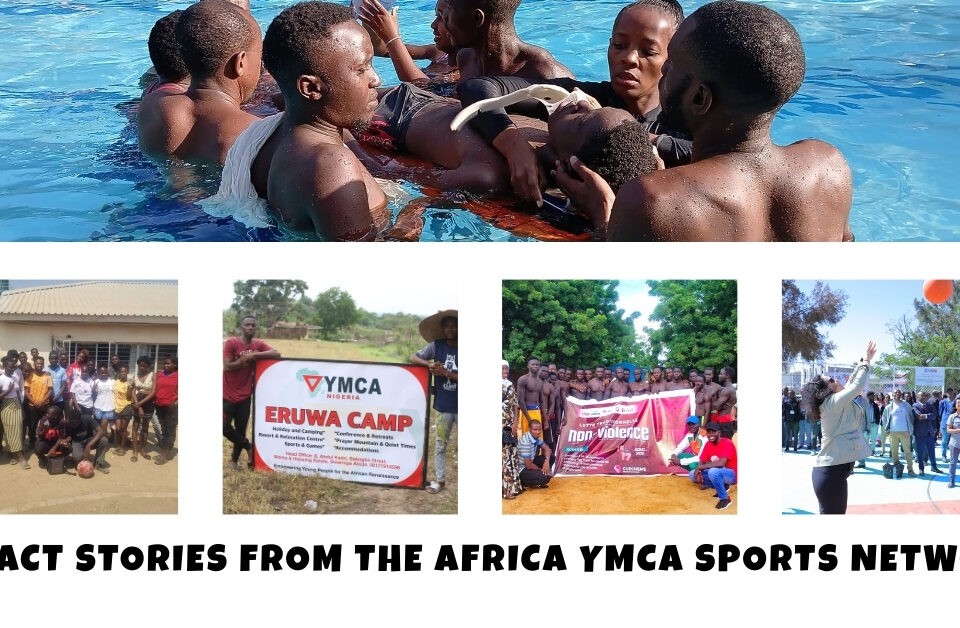MY COP28 EXPERIENCE

Call for Consultants: Join the Innovation Journey with AAYMCA!
15/02/2024
Voices of Change: Stories from Green Ambassadors
20/03/2024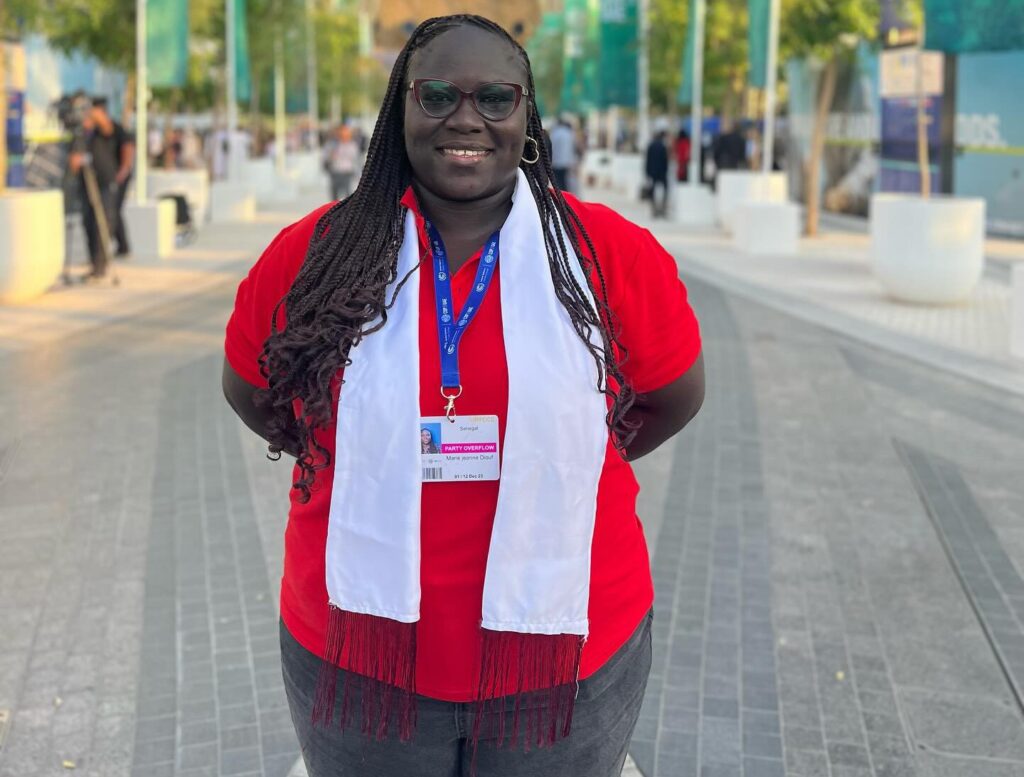
MY COP28 EXPERIENCE
This year I had the chance to be selected as a young delegate for the World YMCA at COP28 in Dubai. For a first effective participation in a COP I can say that it was an extraordinary experience and very enriching in terms of meetings and learning. Our main mission this year was to lead a strong advocacy on climate finance and the involvement of youth in decision-making bodies. As I am more or less a novice in this, I had some difficulties understanding and integrating during the first few days because I didn't know who to address and in what circumstances to make any kind of plea. Mainly as a representative of the African continent, I focused more on the continent's priorities and, in relation to that, positioning ourselves for our mission.
 What I mainly noticed from following the discussions is that our renewable and non-renewable resources must be exploited to ensure the continent's energy, food, mineral, and environmental security, meeting fundamental needs and promoting sustainable structural transformation. In this sense, it is important to advocate for a reduction in both the consumption and production of fossil energies in a fair, orderly, and equitable manner. It should be noted that during the negotiations, African countries asked for more adequate funding. However, according to some, even if Africa demands improved and predictable climate financing, it should explore other innovative financing mechanisms, including private sector investment, and accelerate the implementation of initiatives such as the Great Green and Blue Walls, and promote climate action, sustainability, and job creation. During some discussions, it was noted that some African leaders expressed their frustration at the inability of industrialized countries to honor their commitments to adequate climate financing.
What I mainly noticed from following the discussions is that our renewable and non-renewable resources must be exploited to ensure the continent's energy, food, mineral, and environmental security, meeting fundamental needs and promoting sustainable structural transformation. In this sense, it is important to advocate for a reduction in both the consumption and production of fossil energies in a fair, orderly, and equitable manner. It should be noted that during the negotiations, African countries asked for more adequate funding. However, according to some, even if Africa demands improved and predictable climate financing, it should explore other innovative financing mechanisms, including private sector investment, and accelerate the implementation of initiatives such as the Great Green and Blue Walls, and promote climate action, sustainability, and job creation. During some discussions, it was noted that some African leaders expressed their frustration at the inability of industrialized countries to honor their commitments to adequate climate financing.
With the support of the Alliance of Small Island States (AOSIS), the G77+China, as well as the Like-Minded Group of Developing Countries and the Least Developed Countries (LDCs), South Africa have been pressuring for a reform of the global financial architecture and Multilateral Development Banks to "provide significant financing for climate and development", including the operationalization of loss and damage financing at COP28. It should be noted that of the 46 members that make up the LDC Group, 33 member countries are in Africa. Also, emphasis was placed on energy. While millions of people in Africa lack electricity, the search for affordable clean energy sources, including increased investments, was also at the center of discussions.
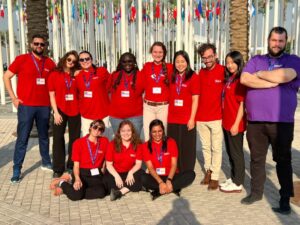
A brief summary of the resolutions:
- The Loss and Damage Fund was created on the first day of COP. Countries pledged hundreds of millions of dollars to this fund; Commitments totaling $3.5 billion to replenish the resources of the Green Climate Fund;
- Over $150 million for the Least Developed Countries Fund (LDCF) and the Special Climate Change Fund (SCCF);
- The Global Cooling Pledge was approved by 66 countries to reduce greenhouse gas emissions related to cooling systems by 68% from today.
In the field of energy, increased efforts in mitigating climate change are essential. Energy is one of the sectors where emissions reduction can have the greatest short-term effects. Thus, the transition towards abandoning fossil energy, parties agreed to gradually phase out fossil fuels in the energy sector by 2050 and for renewable energy and energy efficiency, parties agreed to triple global energy production capacity from renewable sources and double the rate of energy efficiency improvement by 2030.
 At the end of this wonderful adventure, what I could retain is that there is currently a strong need to strengthen collective efforts to address challenges at both quantitative and regional levels. The significant disparity between Anglophones and Francophones in terms of awareness of adaptation programs is one of our main obstacles, and access to financing is another. Most of the financial resources are often allocated to Anglophone countries, creating a disparity in support.
At the end of this wonderful adventure, what I could retain is that there is currently a strong need to strengthen collective efforts to address challenges at both quantitative and regional levels. The significant disparity between Anglophones and Francophones in terms of awareness of adaptation programs is one of our main obstacles, and access to financing is another. Most of the financial resources are often allocated to Anglophone countries, creating a disparity in support.
I also want to thank and congratulate the other YMCA delegates, especially our Team leader Shakil, who has propelled, guided, and even accompanied us throughout the stay. The World YMCA currently strongly supports the actions of the RGE and currently all the delegates of this COP28 are part of this action group. Also, thanks to the African Alliance of YMCA who sponsored my effective participation in this COP. Upon my return, I am starting to plan activities and webinars with some YMCA branches in Senegal to better raise awareness but also to consolidate our actions at the national level.
